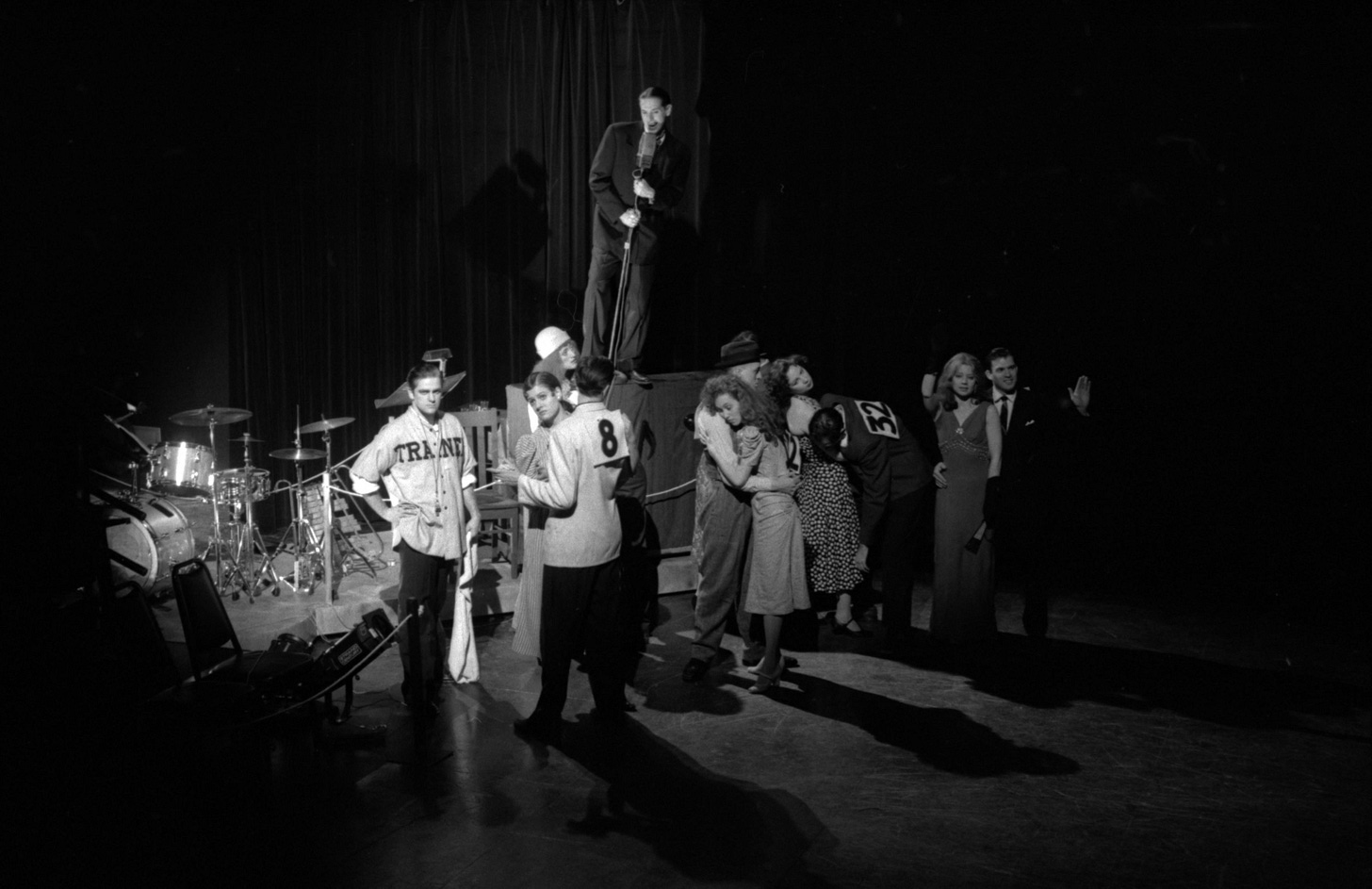I studied acting in college, which my sons never fail to find amusing. Because they cannot comprehend a world in which their father engaged in acting, much less got paid for it. In fact, I appeared in the chorus of an Off-Broadway musical, this despite the fact that I can neither 1) sing or 2) dance.

They struggle with accepting their dad once followed that path and wondered how that was even possible. And they note I’m a pretty piss-poor liar, too.
They didn’t accept my explanation that acting wasn’t lying, per se, but finding the truth in an imagined situation or world. They just don’t see me as that guy.
On the other hand, they never have any trouble seeing me as a bouncer at a bar (one of the many jobs I had in grad school) as that it contorts with their image of me today.
But though I eventually came to the conclusion that while I enjoyed acting, it wasn’t fulfilling for me as a career ( and what a hard road that career is) and shortly after moving to New York City, I began writing plays and thus embarked on a new career.

The point to this is, my experience with dramaturgy and story structure began as an actor. I looked at story through that lens first and foremost.
Actors ask themselves, what does the character WANT in this scene. What’s their goal, their motivation, and are they aware of it or oblivious to it?
That’s a huge simplification, of course, but for purposes of this discussion, there you go. We all want things (even if it’s just to be left alone) and we all, as a people, make choices and decisions that bring us to that goal, either consciously or unconsciously.
I loved that aspect of the craft, figuring out what made characters tick, and I suppose that is, in the end, why I drifted into story-telling for myself. It’s a different kind of forensics, breaking stories down like you do characters, but I find it a never-ending fascination and perhaps (hell, probably) that’s why I keep going at this.

So how does this relate to story-telling here, now and today? Regarding books, films and television?
Well, there are standard types of stories, and you already know some of them (romances, adventures, thriller, etc) but I find with films and television, the powers that be prefer primarily two or three major types. Two I am certain you’re very familiar with, but the third is one of my favorites and much more difficult to pull off.
And oftentimes, creators will mix and match, too.
The first story type is what I call an AGENT OF CHANGE.
Basically the HERO (or heroes, sometimes it’s a group) have adventures and initiate change in whatever world they find themselves in.
As children, my generation was primarily exposed to this type of story via television, specifically Bugs Bunny cartoons. Bugs was a trickster character and he never changed his personality… he would show up and thwart whatever plan Elmer or Daffy had in mind. He changed their world, to their dismay.
Away from animation, one only need to look at Caine from KUNG FU, the series, or Dr. Bruce Banner in THE INCREDIBLE HULK… both characters wandered the country, meeting new people in every episode, help them solve their problem and move on. Quite a few shows do this (HOUSE is another example of this)… the characters didn’t change, per se, but they changed others. The show LEVERAGE currently does this with a group of people, as did the original series STAR TREK.
In film, you see this with James Bond, Ethan Hunt, Jason Bourne, Mary Poppins, and countless more. Chili Palmer in GET SHORTY is a classic agent of change. Chili doesn’t change, but his character forces those he meets to change and evolve.
Biblically, Jesus is an agent of change. As was Buddha, and many others.
Their character doesn’t arc, per se (that word, arc, if you’re a screenwriter or novelist, you’d best get familiar with it asap) but they cause others around them to do so.
Many love stories are often this (they’re often a combined story, one character is the agent of change, see PRETTY WOMAN, CINDERELLA, 50 SHADES) and sometimes they’re combined with the second type of story, which is the story of change (to be written about on a later date).
So when you’re crafting your tale, ask yourself, is my hero going to change or are they going to change others?
As an actor, I’d ask myself my character’s purpose, his or her goal… what was it all about for them?
As an author, you can ask yourself the same thing about the entire world.
What’s it all about, then? What change am I striving for here?
You must admit, you read novels you love and watch and rewatch movies you love because they, somehow, trigger a change inside of you. Because of how the character acts, whether they’re changing themselves in the story or others… as a reader, you feel transformed yourself every time you revisit the story (Christmas is coming, that’s a story, and Easter, when the savior allegedly rises from the dead) it reminds you of your humanity.
I chose this story type to discuss first because, well, stories themselves are meant to be agents of change in and of themselves. So you should ask yourself when you embark on your journey, what is my goal, here, with this? What do I wish to achieve.
What change do I want to see in the world of this tale?
Some great, fantastic stories came out of many creators as a result of this question.
Get ready for Part II, coming your way soon.


